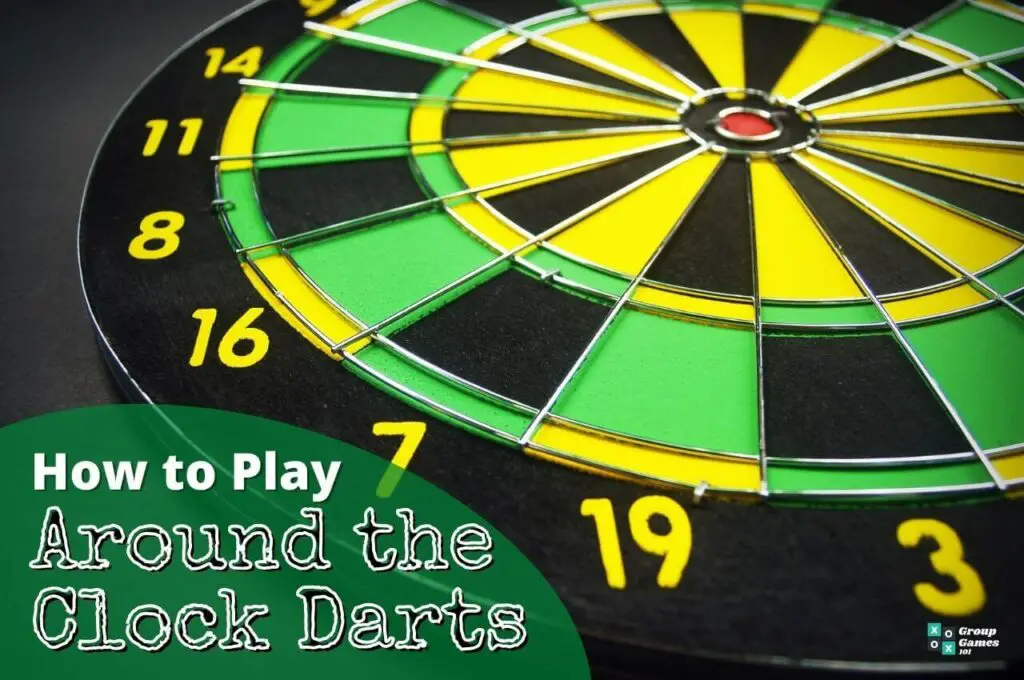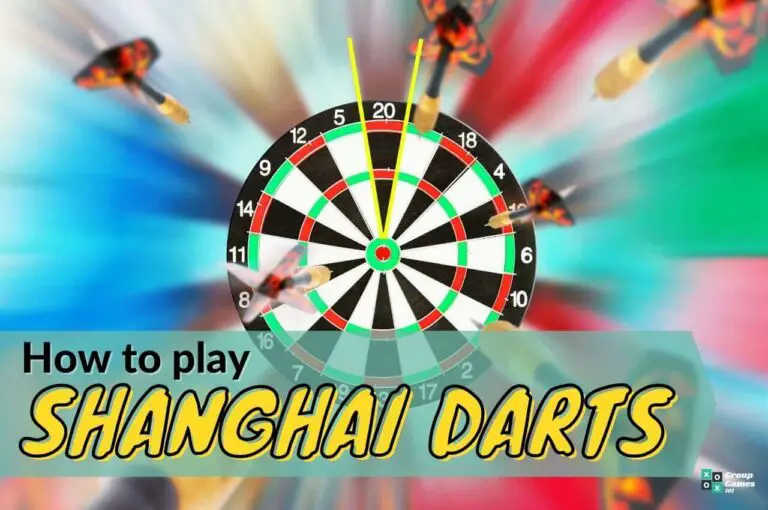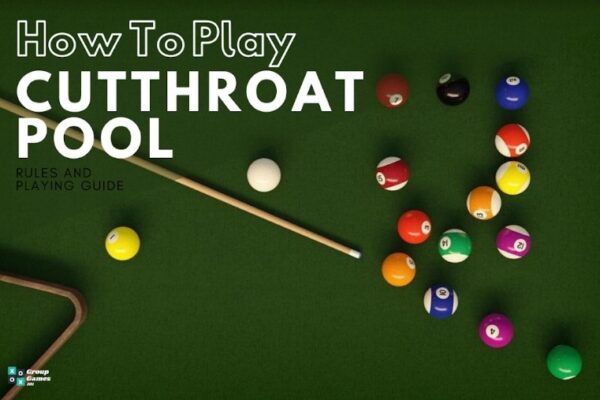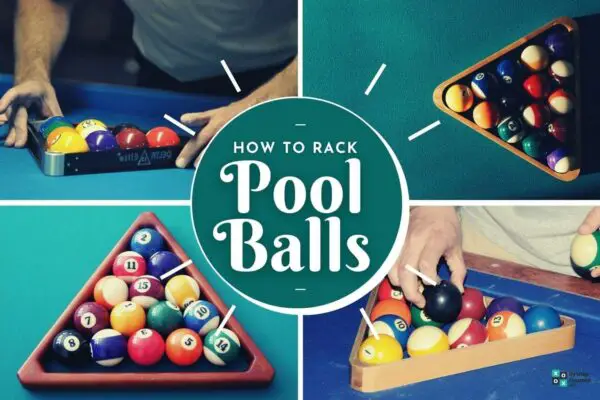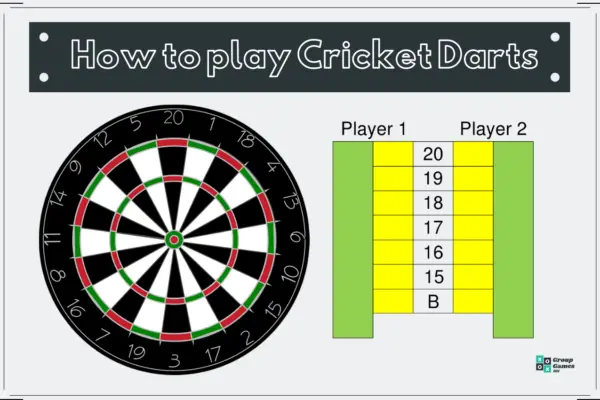Are you interested in playing Around the Clock darts, but have no idea where to start? Or are you an experienced player looking for a fun way to refine your skills?
If the answer to either of these questions is a resounding ‘yes’, then we may have the game for you.
Darts is starting to gain popularity, judging by the ever-increasing viewing figures, and the ever-growing number of dartboard games that exist. The enthusiasm of the spectators watching live, often in fancy dress, is also growing in numbers.
And the reason why is because anyone of any skill level can pick up and play.
The premise of ‘Around the Clock’ is simple – hit the bullseye before your opponent does.
The journey to get there is far from easy though. It involves throwing a dart at each number in ascending order between 1-20.
Although, hitting the bullseye itself is no easy feat. Even the professionals struggle, according to the Professional Darts Corporation, who hit the ‘bullseye’ with 25% accuracy.
The game is sometimes known as ‘Around the World’ and gets rid of any calculations, making it more accessible to beginners.
But as long as you can count to 20, you’re good to go.
In today’s guide, we’ll go into detail about how Around the Clock works and ways in which this game can fit in with your group of friends or family.
What is ‘Around the Clock’ Darts?
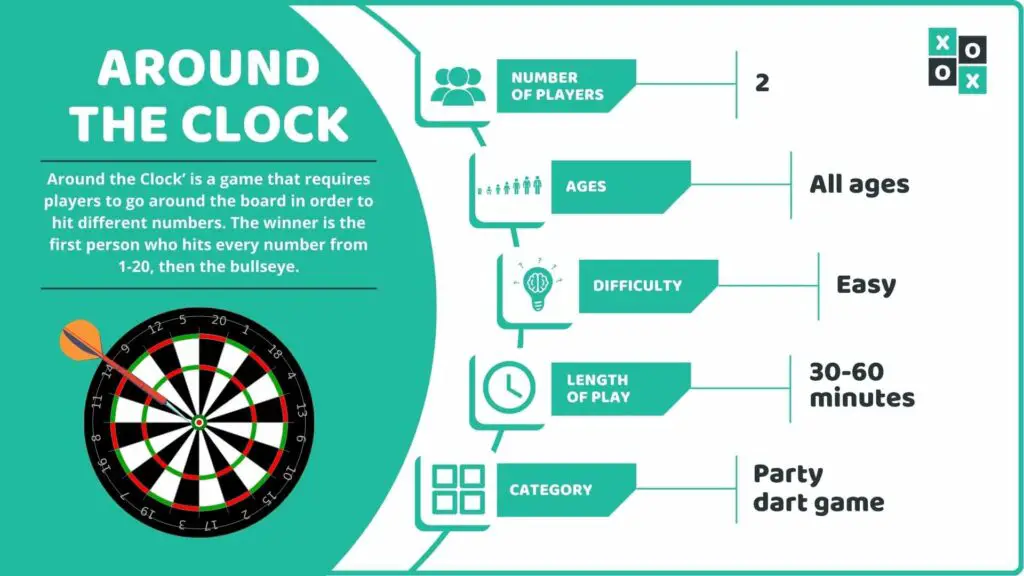
‘Around the Clock’ is a game that requires players to go around the board in order to hit different numbers. The winner is the first person who hits every number from 1-20, then the bullseye.
Number of Players Required: Unlimited, although usually played with 2 players.
Who Can Play It: Any age and ability.
Difficulty: Easy.
Main Objective: Be the player to hit every number and the bullseye before your opponent does.
Why we love it: It’s such a simple game to start playing, even if you’re not familiar with other darts games. Those who are more experienced can use it as a way to hone their skills. It’s also an ideal big group game, as lots of people can take part in the same game.
Equipment You’ll Need to Play ‘Around the Clock’ Darts
The Dartboard
A dartboard of any size will do. The larger the board, the easier the game will be – and vice versa.
If playing at a local pub or bar, then the dartboard you would expect to see will be a standard size board, which is 18’’ in diameter.
The Darts
Like the dartboard, any set of darts will do for this game.
Darts come in different styles, lengths, and weights.
If you’re looking to get into darts, it’s a good idea to experiment with different varieties. Getting familiar with different options can help in improving your performance.
For safety reasons, use soft-tip darts if playing with younger children.
How to Set Up Your Game
Dartboard Position: Ensure that the ‘bullseye’ is 5ft 8’’ from the floor.
Throwing distance: The ‘oche’ is usually around 7ft 9in away from the front of the dartboard. Use this as the standard size and move closer if you’re looking to make the game easier.
Throwing line: Mark where you intend to start throwing from with either chalk, a bit of tape, or a block of wood. Keep your standing foot behind this line. Ensure that all players’ feet do not creep forward whilst throwing.
‘Around the Clock’ Darts Rules and Gameplay
‘Around the Clock’ has many variations in how it’s played. This depends on how many people are playing and the skills of those involved. We’ll go through the basics first.
Starting the Game
The decision on who starts any game of darts is up to personal preference. If you wanted a fair way to decide then the general method is to throw a dart at the board, often called ‘bullingup’. The closest to the bullseye starts the game
The person who goes first usually has a considerable advantage over their competitor. If playing with someone less experienced, it may be a good idea to let them begin to give them a fairer chance.
How to Play ‘Around the Clock’
- Each player has three darts per throw.
- Players take it in turn to throw.
- Each player works their way clockwise around the board.
- Start by hitting number one, then number two, and so on, all the way to twenty.
- Players only have to hit each number once with their dart before they can move on to the next number.
- Doubles and triples count, but only for that numbered section (ie: if you land a triple 3, that still only counts as landing the number 3, not the number 9)
- After hitting 20, players then go for the bullseye.
- The winner is the first player to hit all 20 sections in order followed by the bullseye.
How to make ‘Around the Clock’ harder
If you are an experienced player then you may feel it’s necessary to increase the challenge.
The doubles and triples aren’t needed in most forms of the game. You could play a game in which you can only score by hitting the dart within these areas instead.
You can make a rule where you can only move on if you can hit the ‘single’, ‘double’ and ‘triple’ score of that number first.
As there aren’t any official rules to ‘Around the Clock’, the only limit to the difficulty is your own creativity.
Doubles and Triples
If you’re planning on including ‘doubles’ and ‘triples’ into your game, it’s important to know exactly what this entails.
The ‘double’ is the area in green or red at the top of the number segment, usually denoting double score in a standard game of 501 darts.
Likewise, the ‘triple’ is in the middle and smallest part of the segment in green or red, which signals a triple score.
As these areas are smaller than the rest of the segment (the single), you can see why bringing these into play can make the game a lot harder.
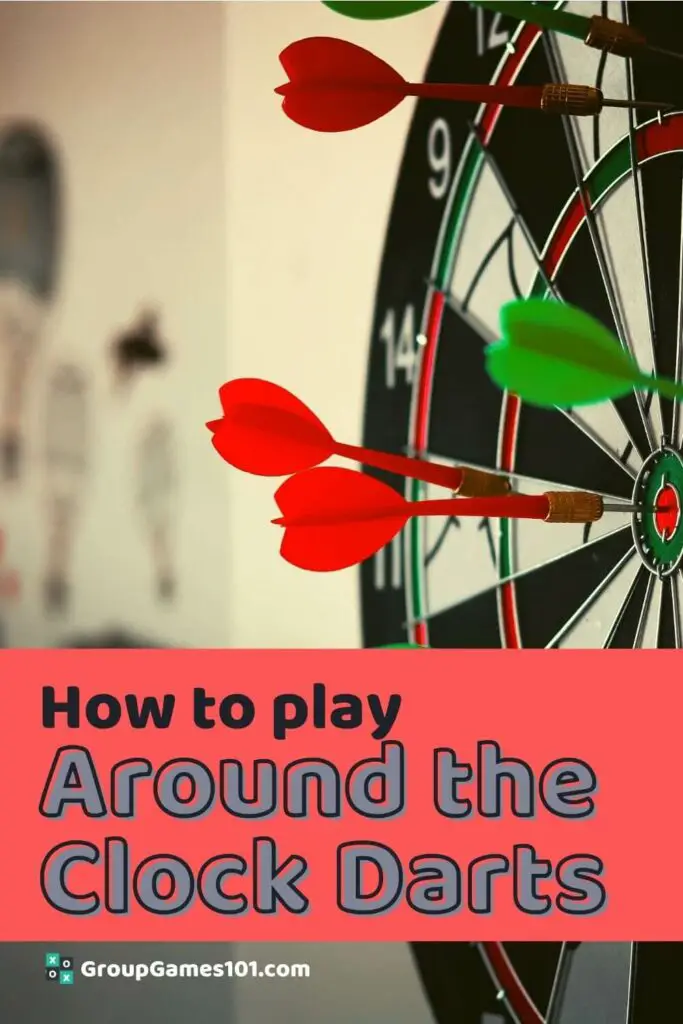
Frequently Asked Questions
Are there any other rules that you can add to the game?
A common rule that you may or may not choose to adopt relates to throwing the darts.
If a player can hit their intended target on their last throw, they earn another go at throwing their three darts.
If you’re not playing with the ‘doubles’ and ‘triples’, you may even add a rule where if you can hit your number in these segments, you can skip a number.
For example, if you’re aiming for ‘7’ and hit a ‘triple 7’, then you can skip the next three numbers as it’s a treble. Thus your next target will be ‘11’.
How come Around the Clock isn’t played professionally?
The purpose of the game is to be fun. The only recognized darts game played professionally is ‘301’ darts and the variations of it.
It doesn’t mean that it can’t be an invaluable way to enhance your darts skills, however.
How can playing ‘Around the Clock’ help me improve my darts game?
When playing other forms of darts, the aim is usually to get the highest score possible. When playing this version, it’s about being accurate with your dart throwing.
The 501 form of darts, for example, means the higher your score the more likely you are to win. So players of this game will generally always aim for the ‘triple 20’ – the highest score.
Playing ‘Around the Clock’ will encourage players to throw darts at numbers that they usually wouldn’t throw to.
This means that they become accurate throwing at any number on the board as opposed to the one score.
Alternatives dart games to ‘Around the Clock’
Are you looking for other similarly fun easy dart games that involve many people and no mental arithmetics?
Then the ‘Killer’ darts game may be a good alternative for you.
Fortunately, ‘Killer’ doesn’t involve anything illegal and works best when playing with a large group.
Very similar to playing ‘Horse’ in basketball, the aim is to build up your letters by hitting a designated number to spell ‘Killer’.
You can then target the remaining player’s designated numbers until they have no letters left themselves.
This is another game that enhances accuracy above all else and again can get anyone of any skill level involved.

